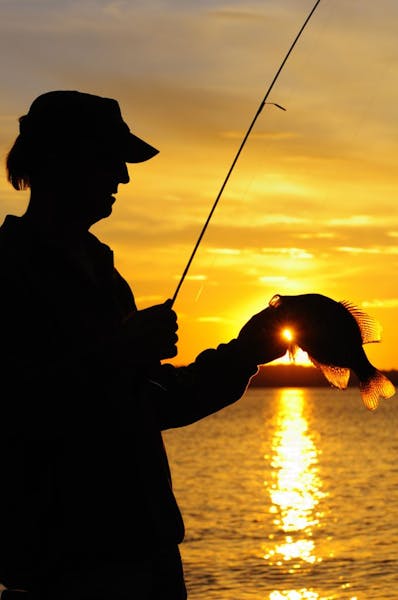"Cease being intimidated by the argument that a right action is impossible because it does not yield maximum profits, or that a wrong action is to be condoned because it pays."
-- Aldo Leopold
Who speaks for resources that can't speak for themselves is at the heart of the nation's conservation dilemma. Having long defined mountains, rivers, prairies, fish and wildlife as commodities, we too often quantify their highest and best use as the ones that ring cash registers the fastest, and the longest. Aesthetic values by comparison seem a poor sister, and proclamations of their worth the tireless errands of idealists, fools, or both.
The mess at Lutsen, the North Shore ski area, makes the point. The owners there have sought this legislative session to legitimize what they have been doing illegitimately now for nearly a decade. Or if not illegitimately, without permission. Call it that. Without permission, beginning in 2001, Lutsen took 60 million gallons of water a year from the Poplar River to make artificial snow as cheaply as possible, according to the DNR. The ski area's permit called for 12.6 million gallons. In some years since, the extraction has jumped to as high as 108 million gallons, according to the DNR.
Notably, the Poplar River is a designated trout stream. In Minnesota, it's been illegal since 1977 to withdraw water from such streams. Lutsen has a waiver from this prohibition.
Aware of the extraction, the DNR neither prohibited it nor formally allowed it. As one official put it, "Lutsen is an employer on the North Shore and we wanted to work with them." The DNR was willing to consider a new permit allowing higher withdrawals, but with limits the agency believed would sustain reasonable wintertime water flows in the Poplar, thereby preserving its aquatic life, not least its steelhead (migratory rainbow trout) and brook trout (including coaster brook trout) -- species the state has spent millions of dollars over many years to encourage and conserve.
No agreement was reached by the DNR with Lutsen.
Then, in recent weeks, on short notice -- this was in the evening -- the DNR learned that a bill headed for passage in the Senate this session had been amended to include clauses that essentially gave Lutsen the high water volumes it wanted.
Lutsen needs the additional water, its owners have said, because expansion plans for the resort are on the drawing board. And pumping it from Lake Superior, from which unlimited water could be taken, would be too expensive, not only to build an adequate pipeline and to purchase pumps, but to operate the pumps.
As you read this, a modified bill granting Lutsen up to 150 million gallons a year has either been signed into law by the governor, or likely will be. The DNR had said it wanted significantly higher flows in the Poplar in winter than the Legislature agreed to, and the restrictions put on the resort -- that if it exceeds its withdrawal limit for five consecutive days -- will be difficult to determine in winter, because testing flow rates on the Poplar or any North Shore river is manpower intensive then and difficult. Anyway, it might not matter: The chances, under Lutsen's new allowance, that in some winters the Poplar beneath its first barrier falls will freeze entirely to the bottom are increased.
In exchange for getting what it sought, Lutsen received some press in recent days it probably didn't want. Fishermen in particular are irate, not a small group in Minnesota. These include not only steelhead anglers, who in spring on the North Shore chase what arguably are the world's most spectacular, and spectacularly challenging, wild fish, but other anglers, too. The thinking among them is that the least expensive choice in this case might in fact be the costliest -- perhaps, in the end, including for the resort itself.
Example: A Facebook page has been established advocating that anglers and others who care about the North Shore boycott Lutsen.
Ron Weber doesn't know much about that. But he knows a lot about rivers and the importance of conserving them. One of two people (along with Ray Ostrom) who brought Rapala lures to North America about a half-century ago, Weber has fished wild steelhead nearly every place they can be fished, and he's well aware how fragile a resource they are.
And how dependent they are on cold, clean, moving water.
Already, Weber's funded a program at the University of Minnesota Duluth that has helped restore portions of the Lester River on the North Shore. Now he's thinking something should be done to help the Poplar, in a fight he and many others consider far from over.
"Coincidentally, I was talking to Gary Loomis the other day and told him what was happening to the Poplar River," Weber said. "He's been involved in the restoration of a lot of salmon and steelhead rivers in the Northwest, and I asked him if he would come to Minnesota to host a meeting of anglers here to talk about river restoration, and he said he would."
Loomis is founder of G. Loomis, a hugely successful rod company he owned and ran until being diagnosed with prostate cancer, at which time he sold out to Shimano.
Now cancer-free, Loomis is president of FishFirst.org, a group that advocates for healthy rivers, and for their restoration.
Weber is hoping that meetings with Loomis and anglers concerned about the Poplar River can be set up in Duluth and the Twin Cities, and perhaps a better resolution to the issue can be reached.
As Leopold said, a wrong action shouldn't be condoned just because it pays.
Dennis Anderson • danderson@startribune.com

Anderson: Building a new Waterville fish hatchery will help shorten the time between bites

Anderson: Trailblazing sonar will be in thousands of boats for opener

Anderson: Celebrate Earth Day by rekindling real connection to nature
Anderson: Anglers protesting tough new Mille Lacs rules are wrong


